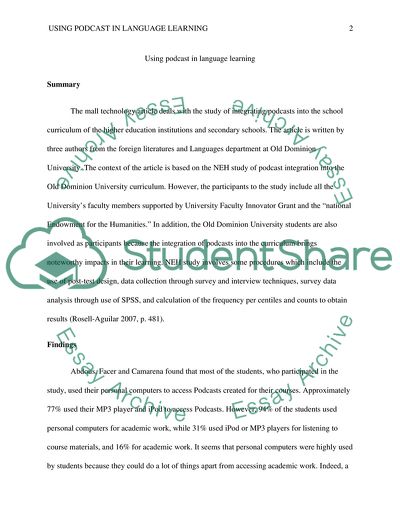Cite this document
(Using Podcast in Language Learning Research Proposal Example | Topics and Well Written Essays - 1500 words, n.d.)
Using Podcast in Language Learning Research Proposal Example | Topics and Well Written Essays - 1500 words. https://studentshare.org/education/1826762-using-podcast-in-language-learnig
Using Podcast in Language Learning Research Proposal Example | Topics and Well Written Essays - 1500 words. https://studentshare.org/education/1826762-using-podcast-in-language-learnig
(Using Podcast in Language Learning Research Proposal Example | Topics and Well Written Essays - 1500 Words)
Using Podcast in Language Learning Research Proposal Example | Topics and Well Written Essays - 1500 Words. https://studentshare.org/education/1826762-using-podcast-in-language-learnig.
Using Podcast in Language Learning Research Proposal Example | Topics and Well Written Essays - 1500 Words. https://studentshare.org/education/1826762-using-podcast-in-language-learnig.
“Using Podcast in Language Learning Research Proposal Example | Topics and Well Written Essays - 1500 Words”. https://studentshare.org/education/1826762-using-podcast-in-language-learnig.


